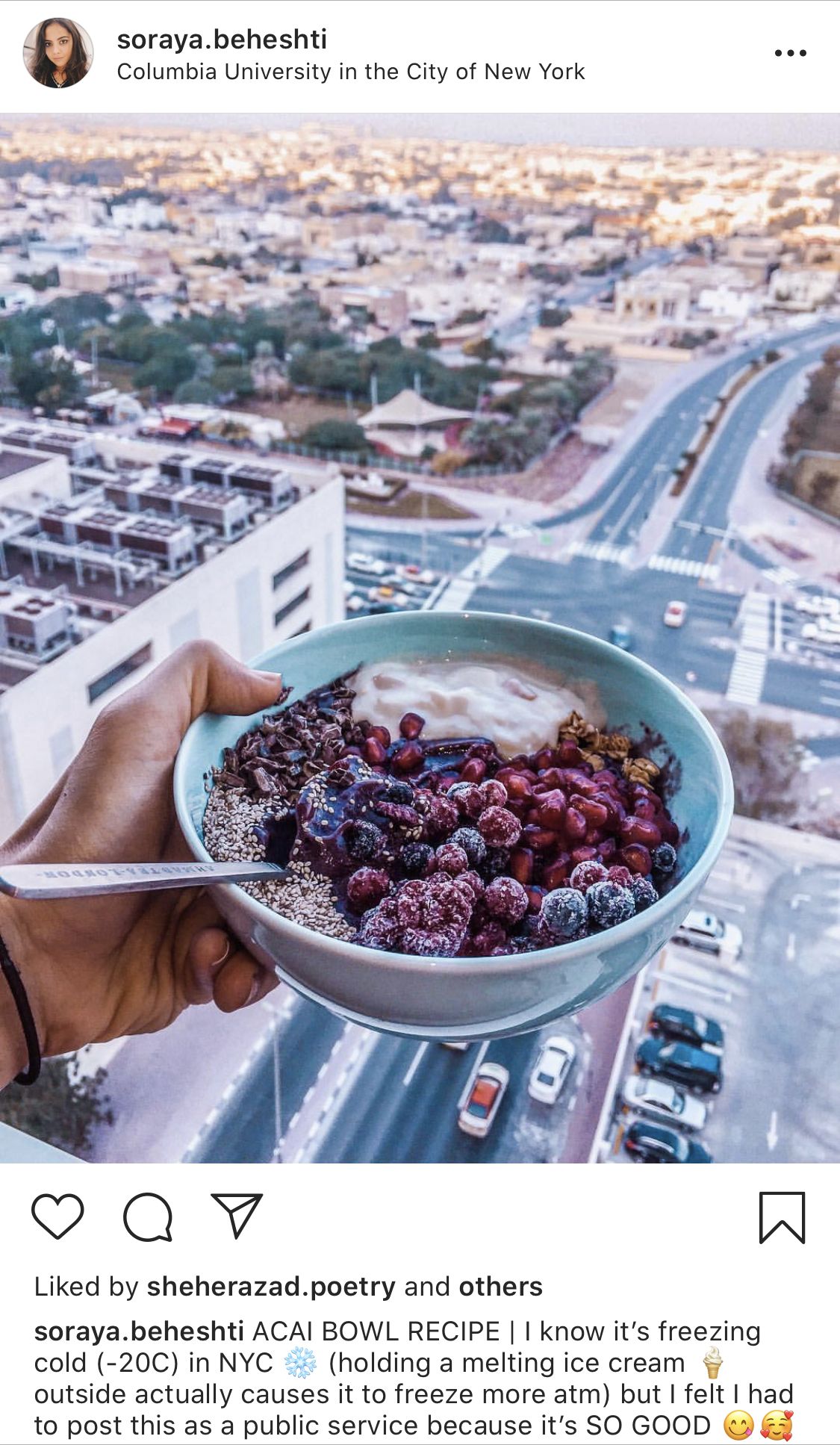How To Get Into Stanford: Crafting A Successful Application
Read now/f/64062/1200x630/dd516e465b/how-to-get-into-stanford.jpg)
/f/64062/1920x773/fe919f5e41/columbia-1.jpg)
Not sure how or why to be vegan, especially at college? Hear from Crimson Country Manager and Columbia University graduate, Soraya Beheshti on veganism benefits and why being vegan changed her life and perspective on current affairs.
When I arrived at Columbia, I had been following a vegan diet for four years. Prior to that, I had been a farm girl, eating a meat-heavy diet and partaking in many of the processes essential to animal agriculture. I started reading about the ethics of animal care as a way to keep me motivated after a classmate challenged me to give up animal products for 30 days.
These ethical arguments were sufficient enough to convince me to abandon my consumption of meat. After this I experienced improved mental clarity and performance, faster athletic recovery, increased energy, improved grades and clearer skin.
I expected to retain my ethical values as a vegan. What I didn’t expect, was that my intellectual work would actually strengthen and give substance to these beliefs. For me, the ethical argument for veganism had been an emotional one, subjective and personal. Through the kind of critical questioning and theorization I became trained in as a student of Anthropology, my ‘diet’ evolved from a way of eating to a subjectivity.
Throughout my time at Columbia, I saw veganism evolve rapidly from a perspective that was perceived to contradict with rationality, logic and reason to one that had become significantly integrated within legitimate frameworks of reasoning. Veganism was not the only subjectivity that underwent this shift. Environmental activists, for instance, had for a long time been perceived as bohemian nonconformists antithetical to the rigors of academic endeavor. By the time I reached senior year, I was studying environmental conservation as part of a Columbia program in the Atlantic rainforest in Brazil.
In my first year, the vegan offerings at Columbia’s dining halls were quite uninviting. By my second year, they had opened vegan sections at every dining hall, complete with dairy-free cheeses and yogurts, desserts, chia pudding and, to my excitement, beyond meat.
They went #meatlessmonday and became one of the most vegan-friendly campuses in the US. The vegans on campus supported the dining hall in being more accessible. The availability of quality options then encouraged more students to try them, resulting in a positive feedback loop that had students thinking more consciously about their daily choices, and becoming vegan.
If you are a student hoping to gain admission into one of the world’s best universities, remember: there is no better reason to seek knowledge than for the betterment of the collective, lived experience.

Countries across the globe are bulldozing huge patches of land to accommodate a growing and unsustainable appetite for meat. From tropical rainforests in Brazil to ancient pine forests in China, entire ecosystems are being destroyed to fuel humans’ addictions to the products of animal bodies.
According to scientists at the Smithsonian Institution, seven football fields’ worth of land is bulldozed every minute to create more room for farmed animals and the crops that feed them. We currently produce enough food to feed 10 billion people - and yet half of the world’s population are undernourished because the majority is used to feed animals, whose bodies will feed a much smaller population of people.
Of all the agricultural land in the US, 80% is used to raise animals for food and grow grain to feed them. A few months ago, the world cried out as devastating images of the blazing Amazon rainforest, known as the ‘lungs of the Earth’, appeared on our media feeds. The cause of these fires were overwhelmingly man-made. Scholars both inside and outside of Brazil had been quietly warning others about the potential risks of harmful practices including, but not limited to the consumption of animal products for years.
We wondered why no one seemed to be up in arms then... Perhaps it was because for the most part, people weren’t confronted with the calamitous reality of their lifestyles. The role of the scholar, then, must be to make these known. To bring forward information and research that can have genuine positive, life-giving and life-improving impact. To leave the hallowed halls of university for the real world - because there is no plan B.

Melanie Joy said that “The path of the norm is the path of least resistance; it is the route we take when we're on auto-pilot and don't even realize we're following a course of action that we haven't consciously chosen. Most people who eat meat have no idea that they're behaving in accordance with the tenets of a system that has defined many of their values, preferences, and behaviors. What they call 'free choice' is, in fact, the result of a narrowly obstructed set of options that have been chosen for them. They don't realize, for instance, that they have been taught to value human life so far above certain forms of nonhuman life that it seems appropriate for their taste preferences to supersede other species' preference for survival.”
Like all movements, real change comes from both and above and below. We have the responsibility to commit ourselves to creating the conditions for this change to be possible. Thank you for being a conscious, caring and engaged citizen. I hope this piqued your interest. If you want to learn more about the connections between environmental issues and food, I recommend you watch ‘Cowspiracy‘ on Netflix.
Additionally, you can check out this fact page, which provides an overview of how our diets impacts the environment. Finally, you can find my research on Academia.edu, where I post papers about Anthropology, Colonialism, Middle Eastern Studies, Humanitarianism and a variety of related topics.